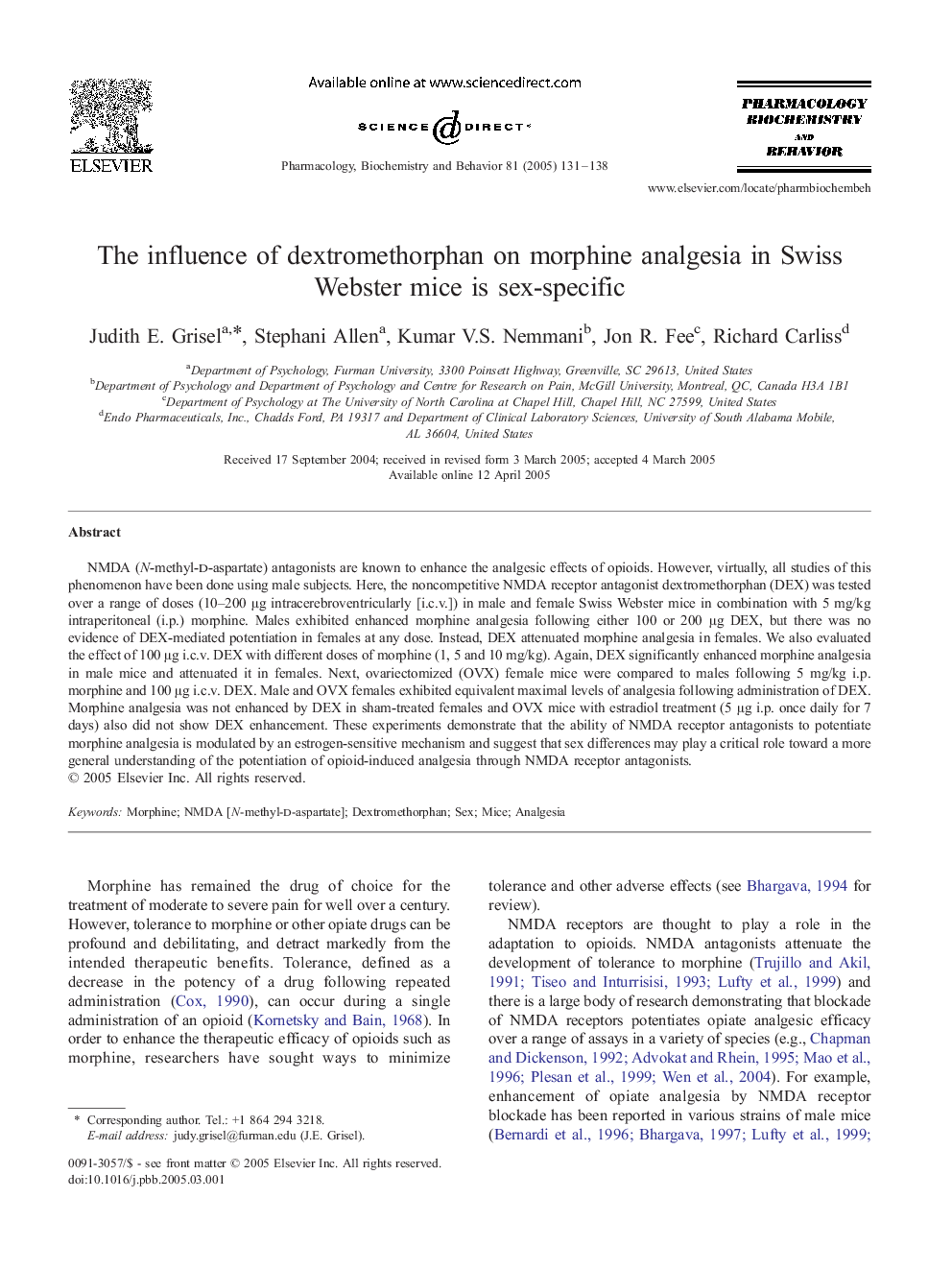| Article ID | Journal | Published Year | Pages | File Type |
|---|---|---|---|---|
| 10838437 | Pharmacology Biochemistry and Behavior | 2005 | 8 Pages |
Abstract
NMDA (N-methyl-d-aspartate) antagonists are known to enhance the analgesic effects of opioids. However, virtually, all studies of this phenomenon have been done using male subjects. Here, the noncompetitive NMDA receptor antagonist dextromethorphan (DEX) was tested over a range of doses (10-200 μg intracerebroventricularly [i.c.v.]) in male and female Swiss Webster mice in combination with 5 mg/kg intraperitoneal (i.p.) morphine. Males exhibited enhanced morphine analgesia following either 100 or 200 μg DEX, but there was no evidence of DEX-mediated potentiation in females at any dose. Instead, DEX attenuated morphine analgesia in females. We also evaluated the effect of 100 μg i.c.v. DEX with different doses of morphine (1, 5 and 10 mg/kg). Again, DEX significantly enhanced morphine analgesia in male mice and attenuated it in females. Next, ovariectomized (OVX) female mice were compared to males following 5 mg/kg i.p. morphine and 100 μg i.c.v. DEX. Male and OVX females exhibited equivalent maximal levels of analgesia following administration of DEX. Morphine analgesia was not enhanced by DEX in sham-treated females and OVX mice with estradiol treatment (5 μg i.p. once daily for 7 days) also did not show DEX enhancement. These experiments demonstrate that the ability of NMDA receptor antagonists to potentiate morphine analgesia is modulated by an estrogen-sensitive mechanism and suggest that sex differences may play a critical role toward a more general understanding of the potentiation of opioid-induced analgesia through NMDA receptor antagonists.
Related Topics
Life Sciences
Biochemistry, Genetics and Molecular Biology
Biochemistry
Authors
Judith E. Grisel, Stephani Allen, Kumar V.S. Nemmani, Jon R. Fee, Richard Carliss,
